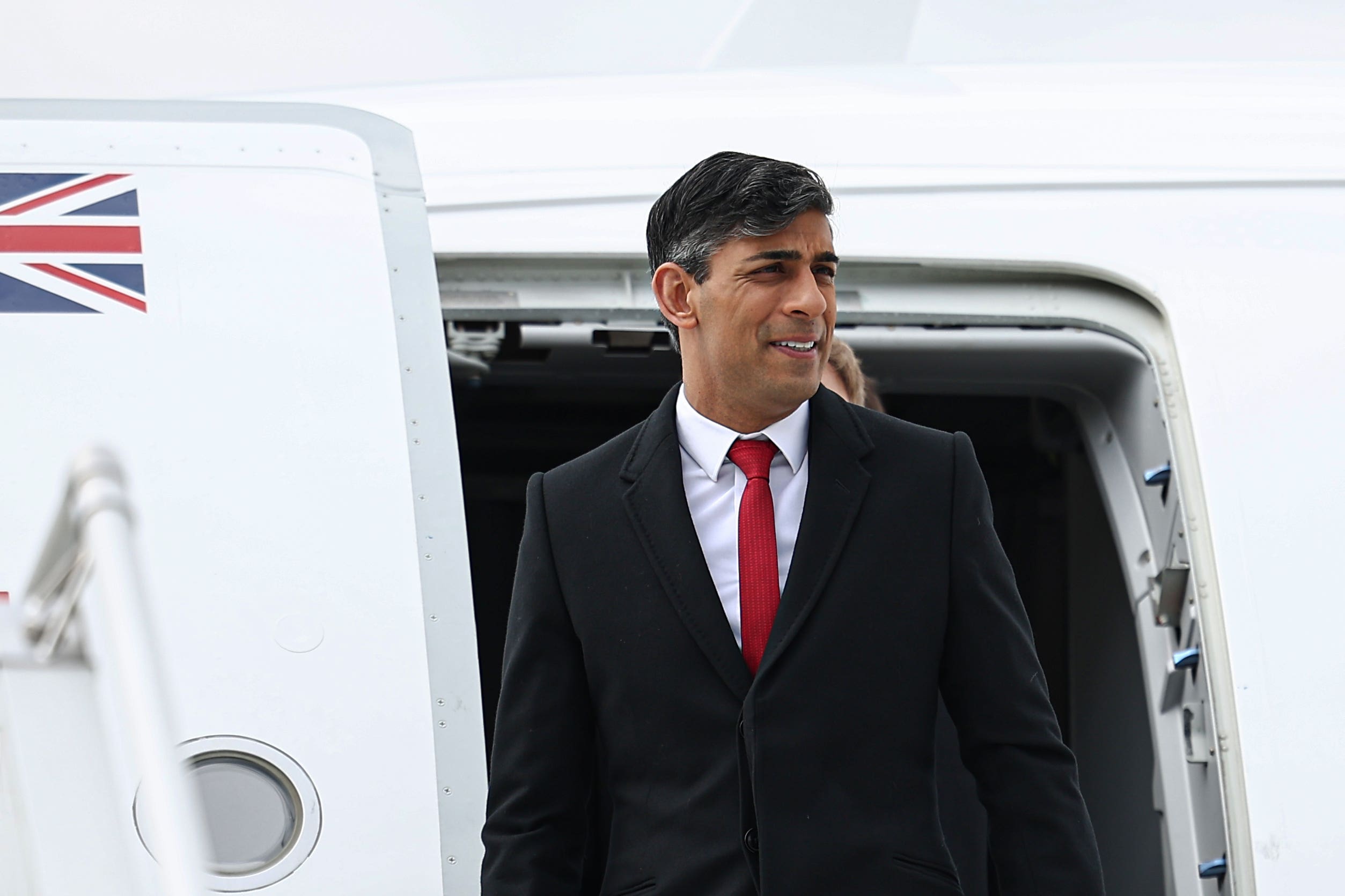Sunak to appoint top general as national security advisor
It is widely expected that the current role holder, Sir Tim Barrow, is being lined up to become Britain’s new ambassador to the US.

Your support helps us to tell the story
From reproductive rights to climate change to Big Tech, The Independent is on the ground when the story is developing. Whether it's investigating the financials of Elon Musk's pro-Trump PAC or producing our latest documentary, 'The A Word', which shines a light on the American women fighting for reproductive rights, we know how important it is to parse out the facts from the messaging.
At such a critical moment in US history, we need reporters on the ground. Your donation allows us to keep sending journalists to speak to both sides of the story.
The Independent is trusted by Americans across the entire political spectrum. And unlike many other quality news outlets, we choose not to lock Americans out of our reporting and analysis with paywalls. We believe quality journalism should be available to everyone, paid for by those who can afford it.
Your support makes all the difference.Rishi Sunak said he will appoint a top general as his new national security advisor, all but confirming that the current role holder, Sir Tim Barrow, is being lined up to become Britain’s new ambassador to the US.
The Prime Minister said General Gwyn Jenkins, one of the most senior officers in the armed forces, has the “requisite set of skills” to provide him with national security advice and to help the Government navigate an “increasingly dangerous world”.
Sir Tim is reportedly expected to take over from Dame Karen Pierce at the British embassy in Washington.
The prestigious placement is even more significant in advance of November’s US presidential election, in which Donald Trump could win a second term.
The Financial Times, which first reported the move, said Labour accused ministers of needlessly rushing through the key diplomatic appointment, with Sir Keir Starmer’s party potentially poised to overturn the appointment if it wins power at the general election.
Asked about the change, Mr Sunak told reporters travelling with him to Poland: “The ambassadorial or diplomatic appointments are always made in the usual way, which they will be. And it’s entirely normal for those to be made in advance, entirely normal, entirely keeping with precedent because ambassadors designate often go and acclimatise themselves and build relationships before they formally start.”
Announcing Gen Jenkins’s appointment, Mr Sunak said: “I’m really pleased that Gwyn is going to do this job. In an incredibly uncertain and increasingly dangerous world, it’s important the person doing this job has the requisite set of skills to provide advice to me and to help navigate that landscape.
“As many of you know, he has a very distinguished career in the armed forces, he was in the special forces as well as serving in No 10 as a military advisor and deputy national security adviser.
“I’d just point out it’s the first time we’ve had someone with a military background in that job and obviously he has worked in No 10 as well so has that policy experience.
“We need someone in that job who can blend a range of different skills together, diplomatic, intelligence, military operations.
“I have worked with Gwyn very closely since I’ve been PM – he’s first-rate, the country is lucky to have his service, the Government is very lucky to have his advice.”
The Prime Minister also said he was “very grateful” to Sir Tim, the current national security adviser who has served as ambassador to Ukraine, Russia and the EU.
“He’s been at the heart of foreign policy with me and really strengthening the UK’s alliances and making sure we are involved and engaged and influential on the world stage,” Mr Sunak said.
Gen Jenkins, who is currently the vice chief of the defence staff, said: “I am honoured to be appointed to this key position, and return to the Cabinet Office at a critical time for our national security.
“I previously saw as deputy national security adviser the significant progress we’ve made through the National Security Council in how we organise, prepare for and respond to threats.
“I look forward to playing my part and working with colleagues across Government as we further adapt this approach, striving to keep our nation and way of life safe in these difficult times.”